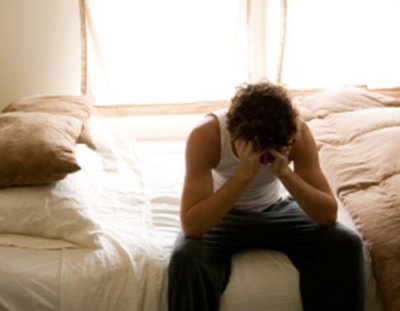Insomnia
What is Insomnia?
Insomnia is an experience of inadequate or poor quality sleep. It may cause daytime sleepiness and impaired concentration, lethargy and irritability.
Insomnia can include:
- Difficulty falling asleep
- Waking up frequently during the night with difficulty returning to sleep
- Waking up too early in the morning
- Feeling un-refreshed in the morning
Types of insomnia
There are actually two types of insomnia:
Short term – due to a temporary situation such as stress, jet lag etc, which usually lasts for a few days and up to one month.
Long term- can be secondary to medical conditions or medications, which occurs most nights and lasts for longer than a month.

Causes of insomnia
Some of the following factors may cause insomnia:
- Occurs more frequently in those over age 60
- History of depression
- Stress
- Medication side-effects
- Sleep/wake schedule problems e.g.: jet lag/shift work
- Certain medical and psychological conditions.
What makes insomnia worse?
Some behaviours may aggravate insomnia, so try to avoid these:
- Worrying about sleeping and expecting to have difficulty falling asleep
- Irregular, or continually disrupted, sleep/wake schedules
- Excessive napping in the afternoon or evening
- Excessive amounts of caffeine
- Drinking alcohol before bedtime
- Smoking cigarettes before bedtime.
Diagnosing insomnia
Over one third of all people occasionally experience insomnia, and about 5% of sufferers require treatment for insomnia. A physician may refer a patient for a sleep study if they suspect that the patient may have a primary sleep disorder such as sleep apnoea , periodic leg movements or narcolepsy.
Treatment for long-term insomnia
- Diagnosing and treating any underlying medical or psychological problems.
- Identifying behaviours that may worsen insomnia and try to eliminate or reduce them.
- Low dose and short duration prescription of sleeping pills taken under close supervision of a physician.
- Relaxation therapy: Specific and effective techniques that can reduce or eliminate sleep anxiety and body tension, leading to a restful Sleep.
- Reconditioning: Associate bed and bedtime with sleep. Advised to go to bed only when sleepy. If unable to fall asleep the person, get up and stay up until sleepy again. Naps should be avoided. Also advised to eventually aim to go to sleep and wake up at the same time each day.
- Sleep Restriction: Allows only a few hours of sleep during the night initially, gradually increasing hours of sleep until a more normal night’s sleep is achieved.
Treatment for short-term insomnia
Short term insomnia may not require treatment since episodes only last brief time.
A physician may sometimes recommend the use of short-acting sleeping pills, which may improve sleep and daytime alertness in the short term.
Tips to help manage insomnia
- Avoid cigarettes, tea, coffee and other caffeinated drinks before bed.
- Avoid strenuous exercise before bed time.
- Create a sleep-promoting environment. Your bedroom should be dark, quiet, cool and comfortable.
- Before bed do something to relax, such as a warm bath or meditation.
- Only go to bed if you feel sleepy and don’t nap during the day
- Don’t read or watch TV in bed.
- Get up at the same time each morning, regardless of how much sleep you have had.
- If you can’t sleep, go to another room and do something else until you feel sleepy again.